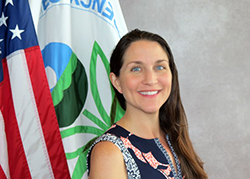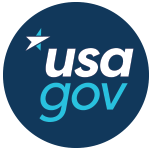RCRA Expert Brownbag Series
Sponsored by: Regions 1, 6, 9, and 10 and the Office of Resource Conservation and Recovery
There are no upcoming live webinars currently scheduled.
RCRA Expert Brownbag Series Archives
- The Next Best Thing to Completing Corrective Action: Connecticut Stewardship Permits and Other Long-Term Stewardship Approaches (March 4, 2020)
- Long Term Stewardship Efforts and Opportunities: Virginia Department of Environmental Quality (November 6, 2019)
- Long-term Stewardship Steering Group Update and Showcase of Wisconsin's Continuing Obligations Program (July 24, 2019)
- Management Standards for Hazardous Waste Pharmaceuticals and Amendment to the Hazardous Waste Listing for Nicotine (April 24, 2019)
- Interim Final Rule on the Safe Management of Recalled Airbags (February 6, 2019)
- Faster Cleanup and Faster Reuse at PCB and RCRA Corrective Action Sites (October 3, 2018)
- Navigating the Legal Pitfalls of RCRA State Authorization (June 6, 2018)
- Long-Term Stewardship at Corrective Action Sites (March 7, 2018)
- Greener and Cleaner: Reducing the Footprint at Your RCRA Corrective Action Site (December 6, 2017)
- RCRA's Land Disposal Restrictions Program - The New Challenges that Lie Ahead (October 4, 2017)
- Introducing EPA's RCRA Training Website: Training Resources for EPA, States and Tribes (August 2, 2017)
- Post-Closure Care Guidance for Hazardous Waste Facilities - Guidelines for Evaluating the Post-Closure Care Period for Hazardous Waste Disposal Facilities under Subtitle C of RCRA (June 7, 2017)
- Hazardous Waste Generator Improvements Rule ("Rule") (May 3, 2017)
- Looking at the Big Picture: the RCRA "Functional" Equivalency Policy and the Policy on More Stringent versus Broader in Scope (March 8, 2017)
- Underground Storage Tanks: Impact of the 3-Year Inspection Requirement on Compliance (February 1, 2017)
- PCB Treatment Technologies (December 7, 2016)
- Military Munitions (October 5, 2016)
- Don't Forget the Well Keys: Lessons Learned from 25 years of Field Work (September 7, 2016)
- The Art of Rulemaking (August 3, 2016)
- How to Make a Hazardous Waste Determination - Listed (June 1, 2016)
- How to Make a Hazardous Waste Determination - Characteristic (May 4, 2016)
- Definition of Legitimate Recycling (April 6, 2016)
- Definition of Solid Waste (March 2, 2016)
- PCBs 101 (February 3, 2016)
- Zen and the Art of Permit Writing (January 6, 2016)
- How Does a Rookie Survive State Authorization? (October 29, 2015)
- Think Before You Dig - How to Make RCRA Work for You in Cleaning up a Site (September 1, 2015)
Accessibility, Recording, and Content Disclaimer
Rehabilitation Act Notice for Reasonable Accommodation
It is EPA's policy to make reasonable accommodation to persons with disabilities wishing to participate in the agency's programs and activities, pursuant to the Rehabilitation Act of 1973, 29 U.S.C. 791. Any request for accommodation should be made to at or , preferably one week or more in advance of the webinar, so that EPA will have sufficient time to process the request. EPA would welcome specific recommendations from requestors specifying the nature or type of accommodation needed. Please note that CLU-IN provides both alternate phone call-in options and closed captioning for all webinars, and requests for these specific accommodations are not necessary.
Webinar Recording
By participating in this CLU-IN webinar, you automatically agree to authorize recording of audio and visual content presented during this live event and consent to subsequent use of this recording in the public domain by the U.S. Environmental Protection Agency. This recording may include questions, comments and poll responses provided by you during the live event in addition to your name, voice, image or likeness. This recording will be made available after the conclusion of the live event as part of the CLU-IN webinar archives, and will remain available indefinitely. If you do not wish to consent to the recording, please do not join the live event, and contact Jean Balent at 202-566-0832 or balent.jean@epa.gov to discuss your concerns.
Content Disclaimer
This webinar is intended solely to provide information to the public. The views and opinions expressed as part of this webinar do not necessarily state or reflect those of the U.S. Environmental Protection Agency. It is not intended, nor can it be relied upon, to create any rights enforceable by any party in litigation with the United States, or to endorse the use of products or services provided by specific vendors. With respect to this webinar, neither the United States Government nor any of their employees, makes any warranty, express or implied, including the warranties of merchantability and fitness for a particular purpose, or assumes any legal liability or responsibility for the accuracy, completeness, or usefulness of any information, apparatus, product, or process disclosed, or represents that its use would not infringe privately owned rights.
Presenters:
 Sebastian Rodriguez, U.S. EPA Region 1 (rodriguez.sebastian@epa.gov or 617-918-1288)
Sebastian Rodriguez, U.S. EPA Region 1 (rodriguez.sebastian@epa.gov or 617-918-1288)
Sebastian Rodriguez started with US EPA Region 1 in 2015 and currently serves as a remediation project manager overseeing cleanups under both the RCRA and TSCA programs. He has a Bachelor of Science in Natural Resources Management from Auburn University. Prior to working at EPA, Sebastian was a research technician for the US Geological Survey. Sebastian chairs EPA's Long-Term Stewardship Practitioner's workgroup and is also active in EPA's data management and GIS communities.
Sandy Brunelli, Connecticut Department of Energy and Environmental Protection (CT DEEP) (Sandy.Brunelli@ct.gov or 860-424-3300)
Sandy Brunelli stared with the Connecticut Department of Energy and Environmental Protection (CT DEEP) in 1992 and currently serves as the state's Corrective Action Program Coordinator and liaison with EPA Region 1. She has a Bachelor of Science in Environmental Earth Science from Eastern Connecticut State University. Prior to working at CT DEEP, Sandy worked as an environmental consultant, conducting environmental site assessments, audits, and RCRA closures. Sandy has previously served on ASTSWMO's Corrective Action and Permitting Task Force.
Diane Walworth Duva, Connecticut Department of Energy and Environmental Protection (CT DEEP) (Diane.Duva@ct.gov or 860-827-2756)
Diane Duva has worked for CT DEEP since 1992 and currently directs the Emergency Response Planning Office. She previously conducted field inspections, implemented RCRA enforcement actions, supervised RCRA Corrective Actions, coordinated brownfields policies, developed materials management policies, and directed energy efficiency policy and programs for the agency. Diane graduated from Brown University and earned a master's degree in environmental management from the Yale School of Forestry and Environmental Studies.
Moderators:
 Jean Balent, U.S. EPA Technology Innovation and Field Services Division (balent.jean@epa.gov or 202-566-0832)
Jean Balent, U.S. EPA Technology Innovation and Field Services Division (balent.jean@epa.gov or 202-566-0832)
Ms Balent is on the staff of the EPA's Technology Innovation and Field Services Division where she has worked to collect and disseminate hazardous waste remediation and characterization information since 2003. Ms Balent manages the Clean Up Information Network website and actively supports online communication and collaboration resources available to EPA. She formerly worked with the US Army Corps of Engineers Environmental Engineering Division in the Buffalo District. Ms Balent was also a member of the SUNY-Buffalo Groundwater Research Group where she constructed and tested large scale models of groundwater flow. Ms Balent has also conducted research relating to the Great Lakes, environmental remediation, and brownfields re-development. She holds a Bachelor's degree in environmental engineering from SUNY-Buffalo and a Master's degree in Information Technology from AIU.
Stephanie Lamster, EPA Region 2 (lamster.stephanie@epa.gov or 212-637-3465)
Stephanie Lamster works in EPA’s Region 2 office as the Lead Region Coordinator for RCRA. Stephanie joined the Agency in 2004 as a Presidential Management Fellow. She has held a variety of positions within the EPA including working on indoor air quality in Headquarters, serving as Special Assistant to the Regional Administrator in Region 3, and serving as a NEPA Reviewer and Endangered Species Act Coordinator in Region 2. Stephanie studied environmental science at Barnard College and has masters degrees in both Conservation Biology, and Environmental Policy from Columbia University.
Webinar Slides and References:
Webinar Slides and References:
Additional Resources:
Thank you for participating in our webinar. We would like to receive any feedback you might have that would make this service more valuable.
Help & FAQs
Adobe Connect Resources
This seminar will be delivered through Adobe® Connect™ with streaming audio delivered through your computer speakers or headphones. We strongly encourage you to test your computer or mobile app prior to attending this seminar using the links below. Technical support on the day of the seminar will be very limited and subject to significant delays.
- Adobe® Connect™ Meeting Connection Diagnostic & Troubleshooting Tips
- Adobe® Connect™ Mobile Apps
- Adobe® Connect™ Visual Quick Start Guide (754KB/2pp/PDF)
Rehabilitation Act Notice for Reasonable Accommodation
It is EPA's policy to make reasonable accommodation to persons with disabilities wishing to participate in the agency's programs and activities, pursuant to the Rehabilitation Act of 1973, 29 U.S.C. 791. Any request for accommodation should be made to at or , preferably one week or more in advance of the seminar, so that EPA will have sufficient time to process the request. EPA would welcome specific recommendations from requestors specifying the nature or type of accommodation needed, such as closed captioning.
with any additional questions
If you have a suggested topic or idea for a future CLU-IN internet seminar, please contact:
Technology Integration and Information Branch
PH: 202-566-0832 | Email: balent.jean@epa.gov
Technology Integration and Information Branch
PH: 202-566-0875 | Email: adam.michael@epa.gov





